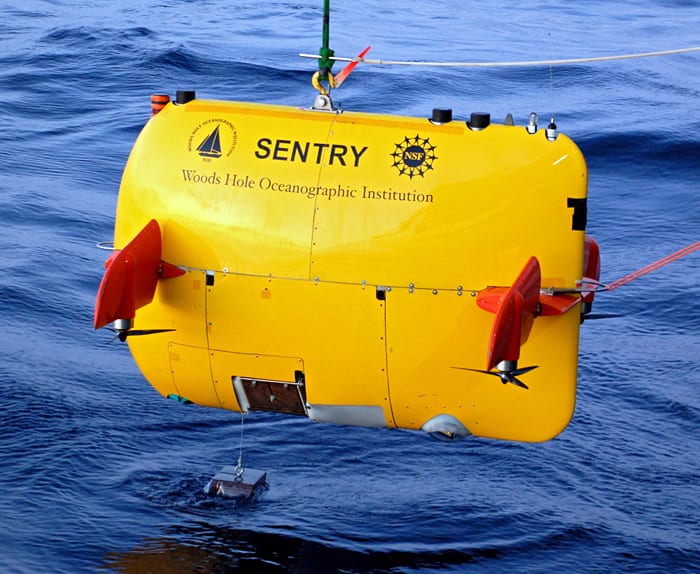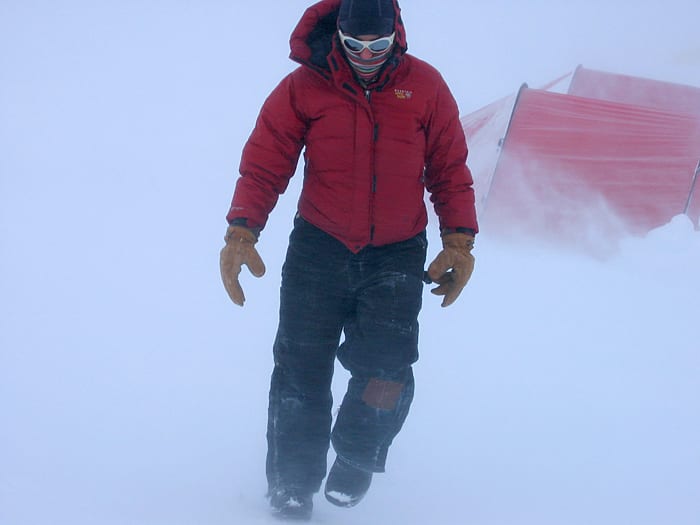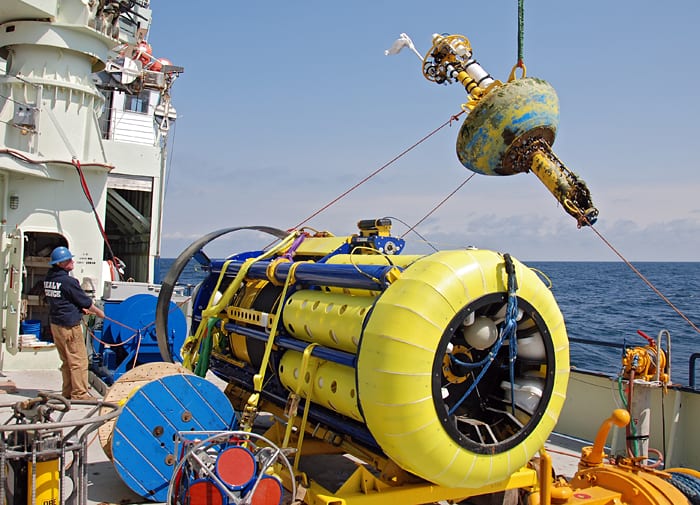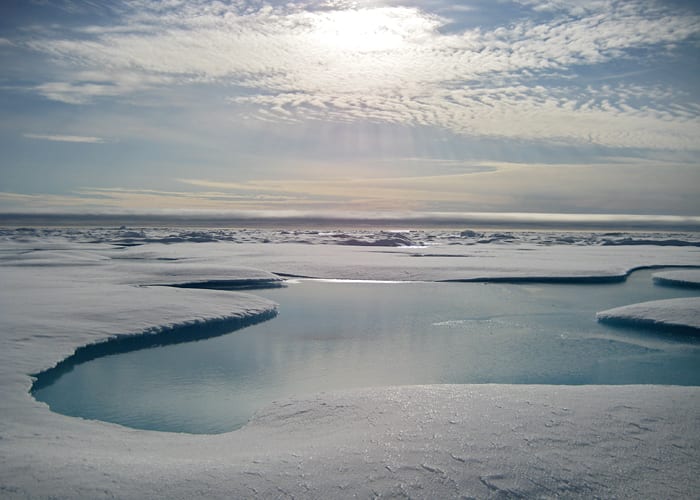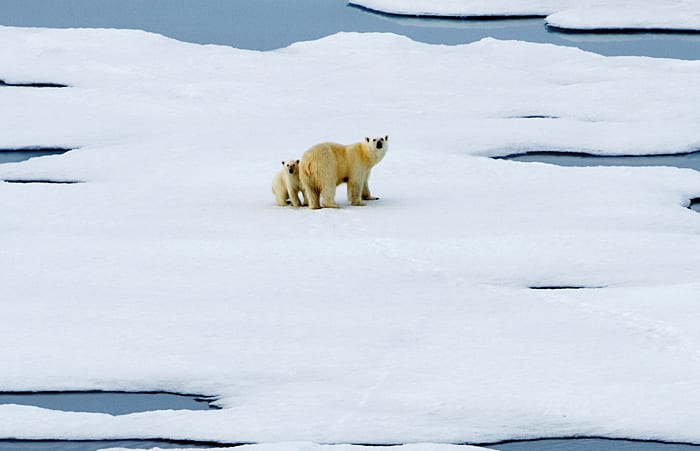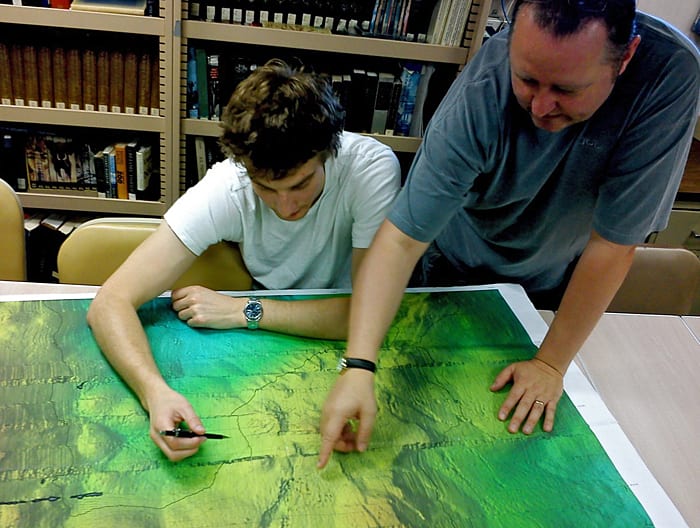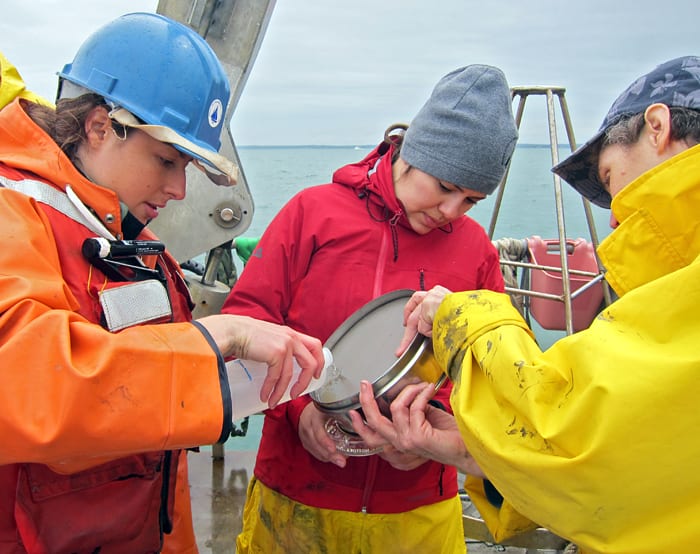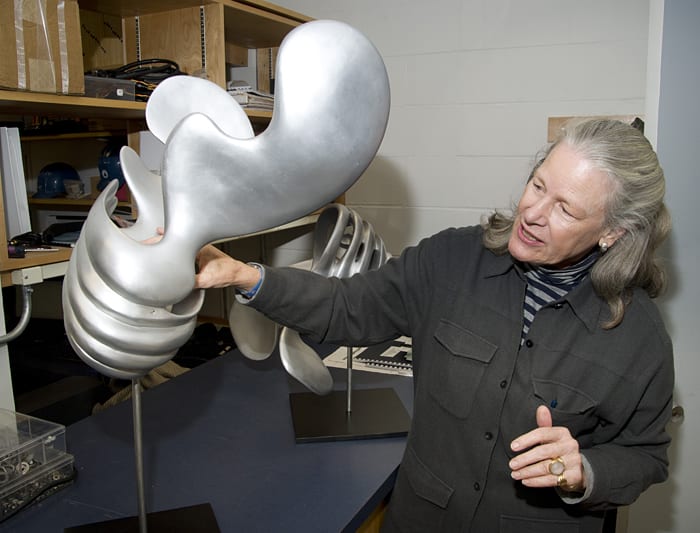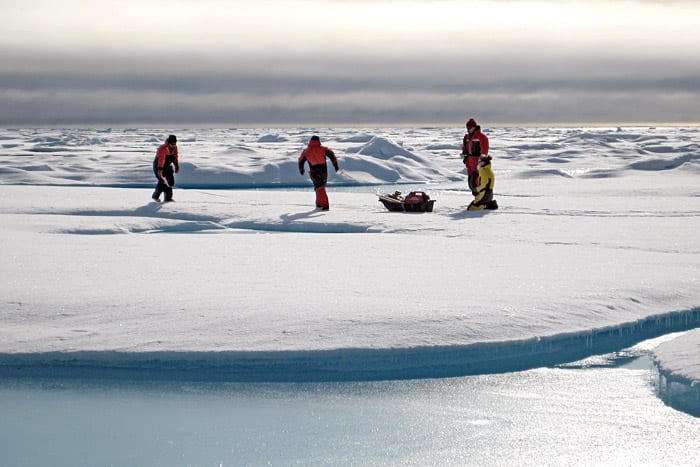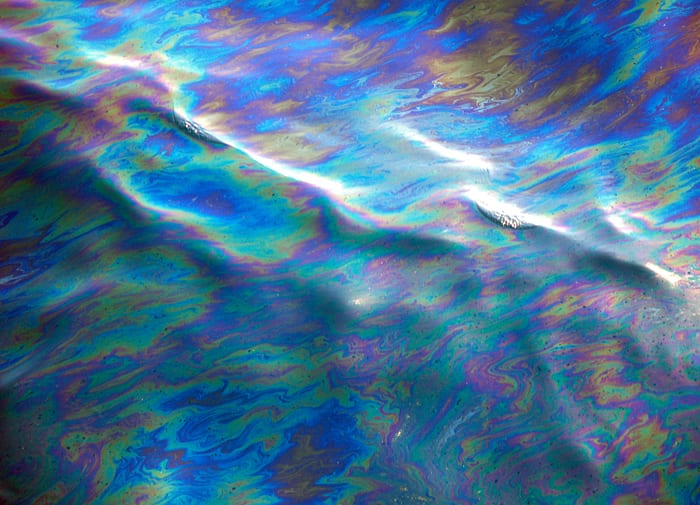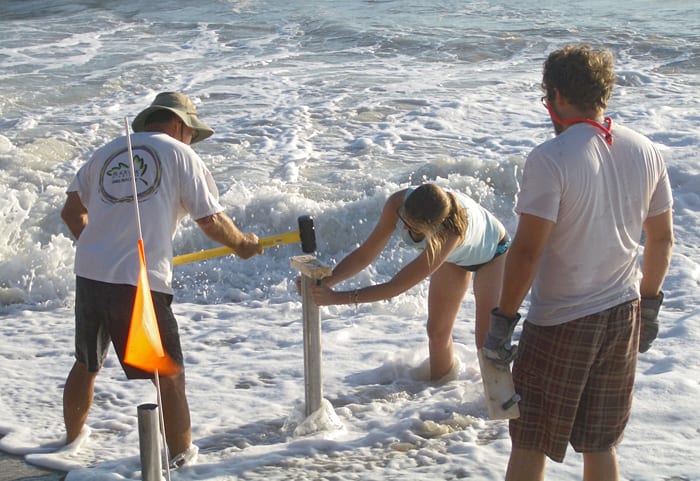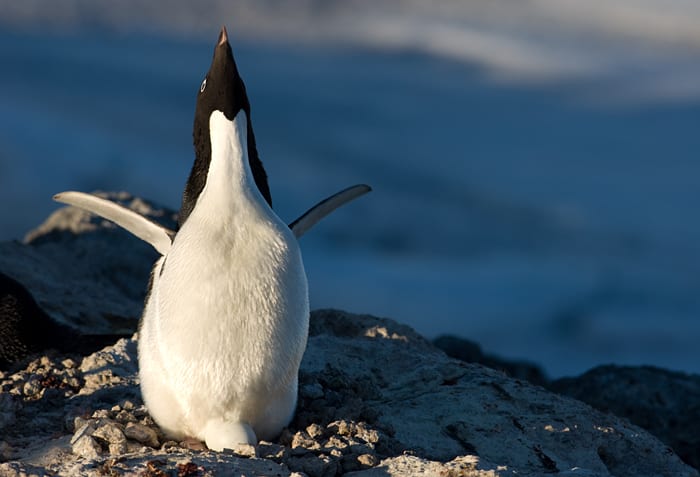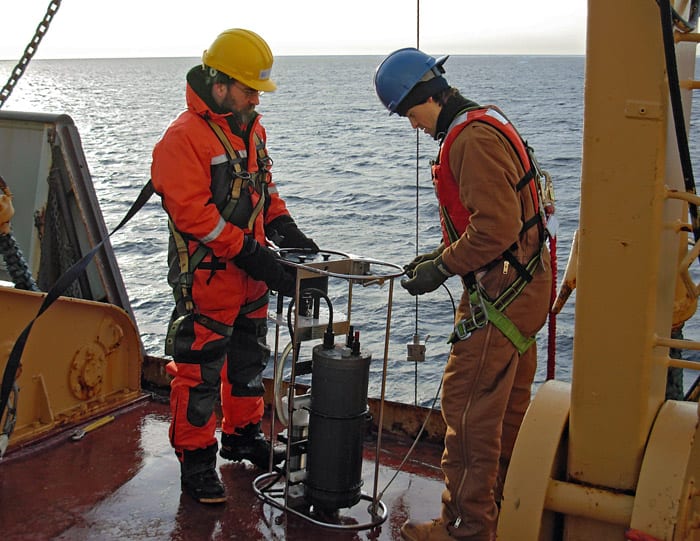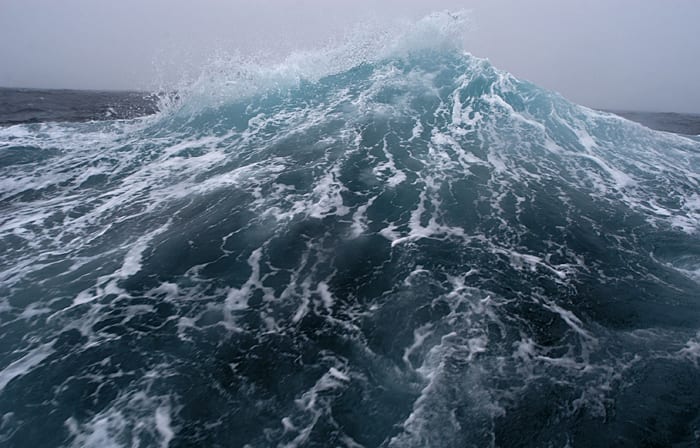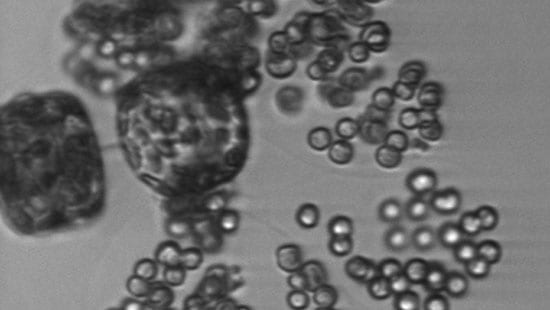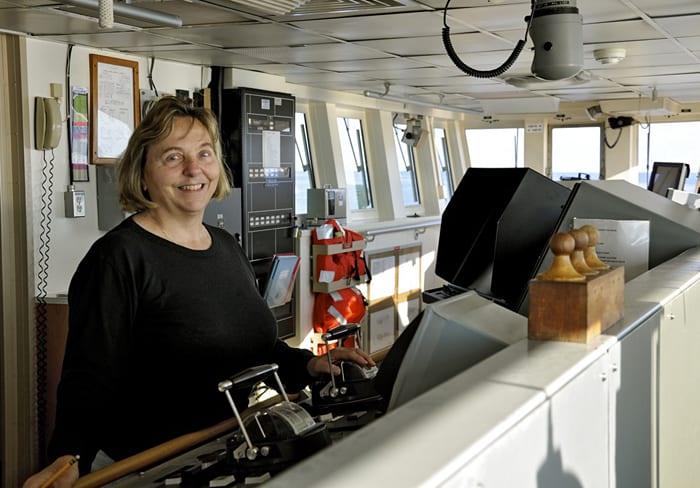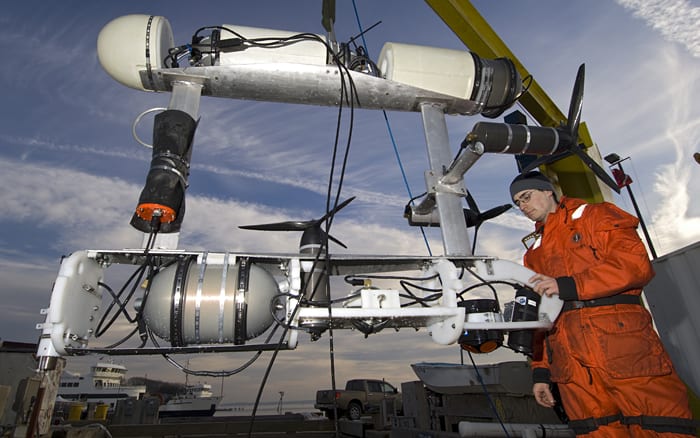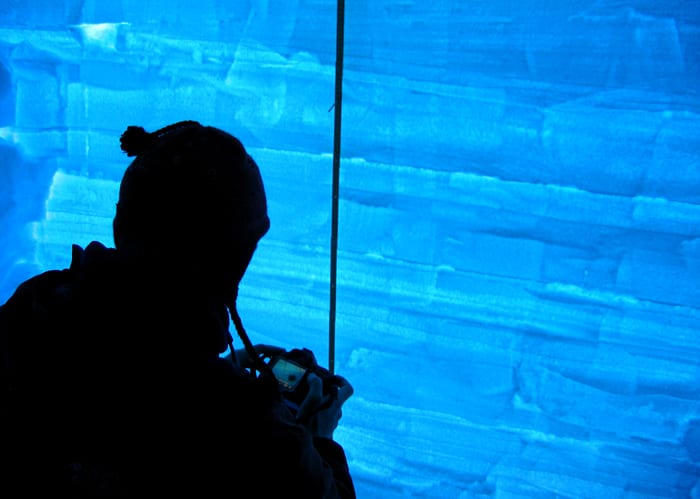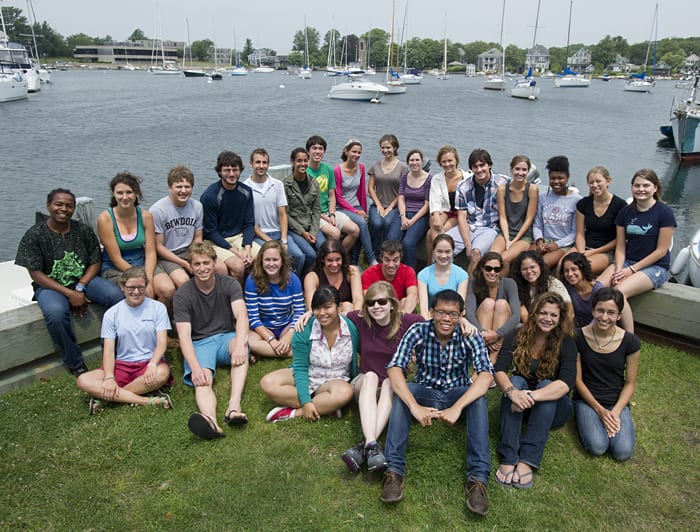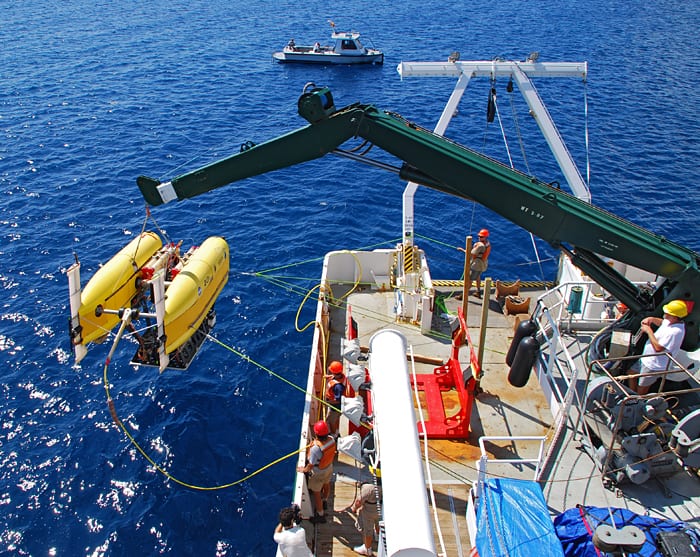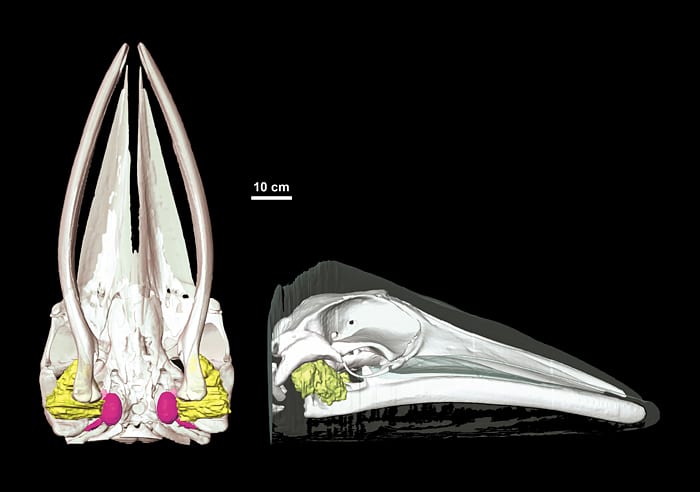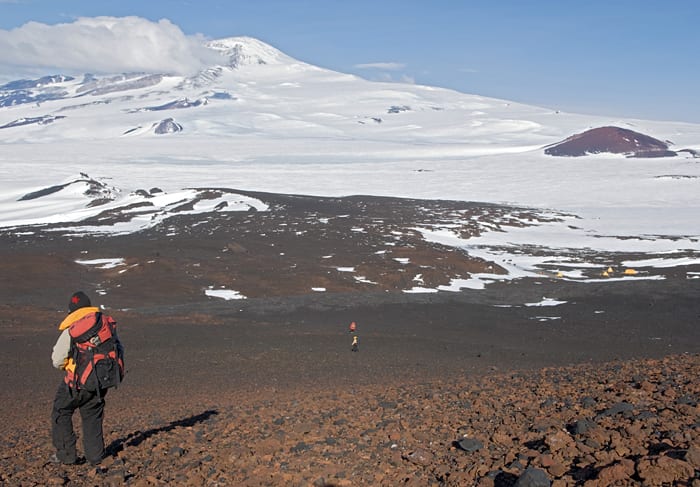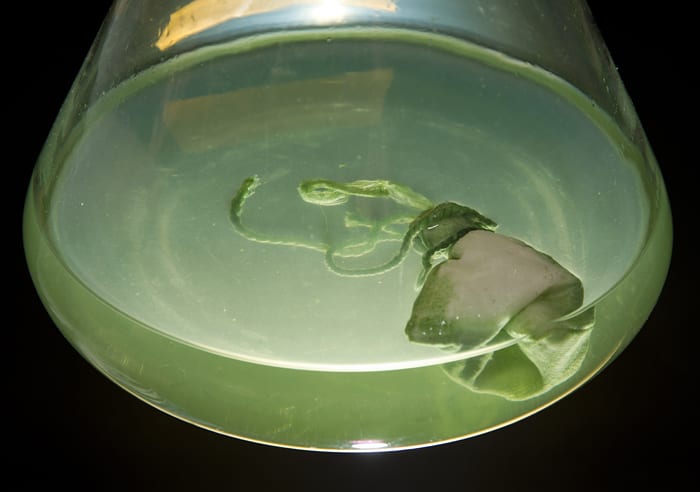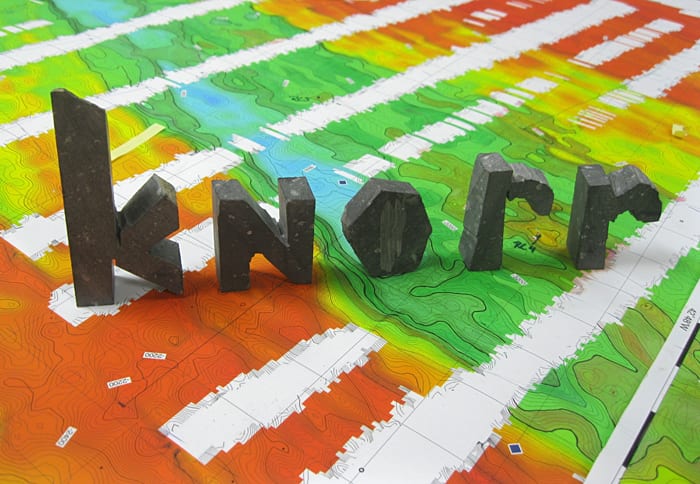Multimedia Items
Marine Workhorse
The crew aboard the research vessel Atlantis launched the autonomous underwater vehicle Sentry during a September 2009 cruise to study natural oil and methane seeps about one mile off the…
Read MoreHappy Summer!
Yes, this is summer—austral summer—in Antarctica, where the air conditioning is natural. WHOI glaciologist Sarah Das and MIT/WHOI Joint Program graduate student Ali Criscitiello, shown here, conducted research on the…
Read MoreThe Mooring the Merrier
John Kemp, head of at-sea operations for the WHOI Mooring Operations, Engineering, and Field Support Group recovers a Submersible Surface Buoy to the crowded deck of the research vessel Knorr…
Read MoreDeep End of the Pool
“Carbon is the currency of life,” says David Griffith, a student in the MIT/WHOI Joint Program and lead author of a recent study to measure levels of carbon in the Arctic Ocean from…
Read MoreHome Turf
Scientists who visit the Arctic sometimes see the region’s most famed inhabitants: polar bears. Photographer Chris Linder saw this mother and cub from the Swedish ice breaker Oden during a…
Read MoreA Plan of Action
WHOI marine geochemist Chris German (right) and doctoral student Matt Hodgkinson of the National Oceanography Centre in England study a map of the seafloor from the Mid-Cayman Rise, an undersea…
Read MoreSurprises from Below
This spring, first-year students in the MIT/WHOI Joint Program who enrolled in the introductory course in biological oceanography had the opportunity to participate in a field exercise on R/V Tioga.…
Read MoreSculpture and Science
Sculptor Cornelia Kubler Kavanagh‘s concern for water and the ocean inspires her work. For “The Pteropod Project: Charismatic Microfauna,” she collaborated with WHOI biologist Gareth Lawson, who studies these animals,…
Read MoreCarbon on Ice
A team of researchers sample ice and snow from an ice floe in the Canada Basin, an area northwest of the Canadian coast, during a 2008 expedition to measure carbon…
Read MoreOil and Water
Oil spills aren’t pretty, but this one is perfectly natural. WHOI scientist Chris Reddy and colleagues from the University of California, Santa Barbara, have been studying areas off the Santa…
Read MorePounding Surf
WHOI biologist Rebecca Gast steadies a coring tube as Bill Boyd, a senior engineer at Scripps Institution of Oceanography, drives it into the sand at Duck, North Carolina, while WHOI…
Read MoreHow Do I Love Thee?
To call his mate, a male Adélie penguin uses a tried-and-true formula: flap flippers, tilt head to sky, then cut loose with a braying screech of a love song. It’s called…
Read MoreSurveying Carbon
Mike Dempsey (left) of the Canadian Institute of Ocean Sciences and MIT/WHOI Joint Program student David Griffith recover a pump used to collect samples during a 2008 expedition in the…
Read MoreWorld Oceans Day 2012
On June 8, we join the international community in celebrating World Oceans Day. The ocean is vast (more than two-thirds of Earth’s surface is covered by ocean), deep (it averages…
Read MorePhytoplankton Bloom
A Steady Hand on the Helm
Over the course of her career, Mitzi Crane has taken an incredible journey to distant lands, dangerous places, and the deep ocean floor. As the first and only woman to…
Read MoreA Job Well Done
MIT/WHOI Joint Program (JP) student Chris Murphy tests an autonomous underwater vehicle (AUV) designed and built by Chris and others in Hanu Singh’s lab. JP students are an important part…
Read MoreDeep and Blue
Scientists dug pits up to 10 feet deep in the West Antarctic Ice Sheet to expose layers of ice that are laid down snowfall by snowfall, year after year. The…
Read MoreOcean Science Summer
Every year, undergraduates come to WHOI for the Summer Student Fellowship Program to gain first-hand experience in ocean science. The students, mentored by WHOI scientists, spend the summer attending science…
Read MoreReady to Dive
In 2009, when WHOI Senior Scientist Chris German wanted to look for some of the deepest black smoker chimineys and hydrothermal vents on Earth, he turned to the hybrid remotely operated…
Read MoreInside a Whale’s Head
Scientists have long known that dolphins and other toothed whales, which use echolocation to find prey, have specialized fats associated with their jaw that help convey sound waves from the…
Read MoreAll Rock
From an isolated camp (yellow tents, at right), WHOI scientists Mark Kurz (left), Adam Soule, and Andrea Burke explored how the waterless, lifeless, volcanic terrain of Antarctica formed and evolved.…
Read MoreGreen Tea
A culture flask containing marine microorganisms could be the source of new treatments for cystic fibrosis, thanks to work recently begun by WHOI microbiologist Tracy Mincer and the Flatley Discovery…
Read MoreWritten in Stone
After cutting samples of basalt rock dredged from the Mid-Atlantic Ridge for scientific analyses, geochemist Cedric Hamelin from the University of Bergen in Norway used some leftovers to create an homage…
Read More
